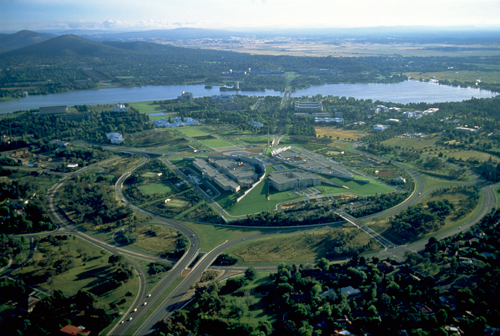Search
Recent comments
- dumb blonde....
3 hours 13 min ago - unhealthy USA....
3 hours 46 min ago - it's time....
4 hours 8 min ago - pissing dick....
4 hours 27 min ago - landings.....
4 hours 38 min ago - sicko....
17 hours 27 min ago - brink...
17 hours 43 min ago - gigafactory.....
19 hours 30 min ago - military heat....
20 hours 12 min ago - arseholic....
1 day 56 min ago
Democracy Links
Member's Off-site Blogs
from the old slave house .....

The new order in Federal Parliament is on the verge of breaking down, with MPs warning they are overworked, at risk of drug and alcohol dependency and are being held hostage by the demands of the independents.
The Sun-Herald has learnt of a strong push by Labor and Coalition MPs to scrap parts of the deal on parliamentary reform negotiated by the independents - Rob Oakeshott, Tony Windsor, Andrew Wilkie and Bob Katter - in the hung Parliament.
It is understood a committee set up to review the new procedures is considering changes to the rules, including scheduled times for votes on legislation, softer pairing arrangements and special arrangements for MPs from far-flung electorates.
In the past, pairing arrangements meant MPs who were unable to attend for any reason, including sickness or travel, would be granted a ''pair'' by the opposite side: an MP who would abstain from voting so the balance would not change.
However, since the close election result, Labor and the Coalition have been reluctant to grant the other side a pair except in extreme cases.
West Australian Liberal MP Mal Washer - the only GP in Parliament - has warned longer working hours and strict parliamentary procedures could cause serious illness in MPs, including cancer and depression.
In a submission to the standing procedures committee, Dr Washer has outlined his concerns for his colleagues, their staff and the staff of Parliament. He said politicians were at risk of falling prey to drug and alcohol dependency to meet the demands of the new Parliament, and called for immediate change.
He anticipated that any move to reduce the working week of politicians would attract public criticism but said he preferred ''politicians to be healthy, efficient and productive''.
''These additional hours are having an adverse effect on the mental and physical health of members.
Crucial to the independents' demands - spearheaded by Mr Oakeshott - was that Parliament sit for an extra four hours a week to deal with private members' bills.
We're overworked, warn stressed-out politicians
oh dear, our poor overworked pollies .... for the paltry sum of around $180,000 a year, our desperately overworked representatives are required to attend Parliament for around 66 days this year.
That's right folks, whilst anyone-else in full-time work has to turn-up for 240-260 days a year, in order to earn their average income of $50,000 a year, our federal minders pull-down more than three times that amount for putting-in a quarter of the time on the job.
And now the poor little mites are claiming that they are being driven to drink as a result of having to work an extra 45 minutes a day, when Parliament is sitting.
For the rest of the year, our pollies are free to pursue their electoral responsibilities, kiss babies & look after their private business affairs (& if you think you will find them at their electoral office each working day when they are not attending Parliament, pop-in & see if you can find them!!
And even though they are all exhausted from their unselfish endeavours on our nation's behalf, it seems that at least some of them still have sufficient time & energy to work-out how to rort the Parliamentary Allowance system, with their latest effort being to buy a property in Canberra, where they stay whilst Parliament is sitting, & then claim the $350 a night Travel Allowance: that's $23,000 a year, which is a great contribution towards the property purchase & a burgeoning property portfolio.
If being a member of Parliament is such an onerous task, I think we should encourage our pollies to look after themselves first & quit .... maybe even get a 'real job' like the rest of us.
Just think how much better-off we'd all be!!
- By John Richardson at 13 Mar 2011 - 6:46pm
- John Richardson's blog
- Login or register to post comments
random representatives...
Democracy can be better served by randomly selecting representatives, argue Italian researchers.
Dr Alessandro Pluchino of the Universita di Cantania and colleagues report their findings on the pre-press website arXiv.org.
"We think that the introduction of random selection systems, rediscovering the wisdom of ancient democracies, would be broadly beneficial for modern institutions," write the researchers.
Dr Pluchino and colleagues developed a computer simulation, in which they studied the behaviour of politicians when randomly selected independents were introduced to a model parliament.
Their model relied on four categories of people in the parliament. These were: 'intelligent' people (actions serve both personal and social interests), 'helpless or naive' (loss for self, but gain for others), 'bandits' (benefit themselves, but not others), and 'stupid' (actions produce a loss for everyone).
The model, involving a parliament made up of two parties, had 500 individuals who could each propose and vote for or against acts.
http://www.abc.net.au/news/stories/2011/03/18/3167785.htm?section=justin
Gus: I believe nothing is random in politics...